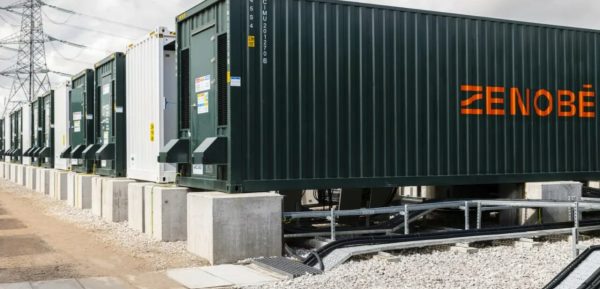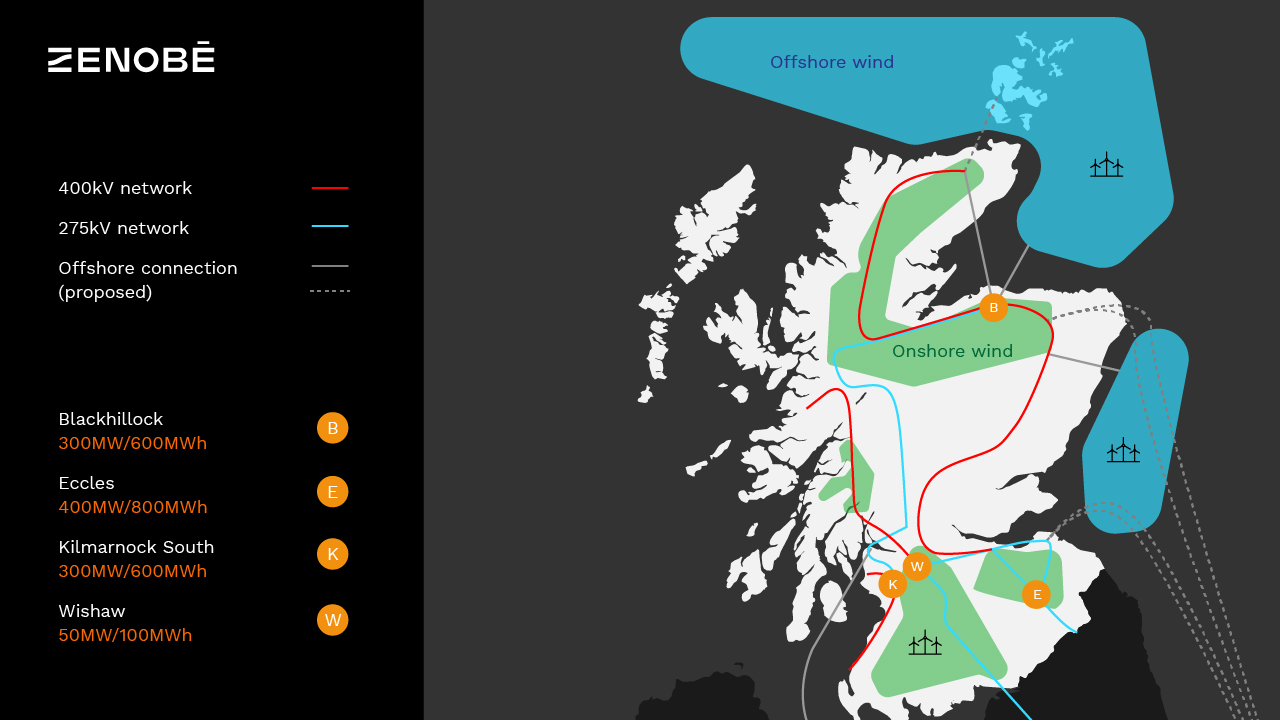Wärtsilä Oyj Abp, trading internationally as Wärtsilä Corporation, is set to deliver one of the largest energy storage systems in Scotland. Wärtsilä is a Finnish company involved in the manufacture and servicing of power sources and other equipment in the marine and energy markets.
The company will supply the system rated at 300-megawatt (MW) / 600-megawatt hour (MWh) to Zenobē under an Engineered Equipment Delivery (EEQ) contract. The contract was recently between the technology company (Wärtsilä Corporation) and the electric vehicle fleet and battery storage specialist headquartered in Kilmarnock, Scotland (Zenobē).
Dubbed Kilmarnock South energy storage system the project will reportedly be carried out in phases under Great Britain’s National Grid’s NOA Stability Pathfinder programme. The programme aims to cost-effectively address stability issues in the electricity system created by the increased adoption of intermittent renewable generation.
Other than being one of the largest energy storage systems in Scotland, this system will be the first to be built with Wärtsilä’s Quantum High Energy (QuantumHE). The latter is a next-generation energy storage system that will provide increased energy density for Zenobē. It is fitted with state-of-the-art features to ensure the highest level of safety for the surrounding community.
Additionally, the Kilmarnock South energy storage system will be developed in a way that it meets NOA Stability Pathfinder requirements. It will also be equipped with Wärtsilä’s intelligent energy management system, the GEMS Digital Energy Platform. The platform will ease network constraints by importing electricity at times of peak renewable generation.
Furthermore, featured GEMS’ data-based intelligence will enable Zenobē to participate in the most valuable UK electricity markets.
Expectations for the Kilmarnock South energy storage system

The 1st phase of the Kilmarnock South energy storage system project (200MW / 400MWh) is expected to go live in H2 2024 while the entire system will become operational by the end of 2025.
Once fully operational, the system will help grid operators to better balance supply and demand as well as ensure that the country’s abundant wind generation is not wasted. In addition, it is expected to abate 3,400,000 tonnes of carbon dioxide emissions over the next one and a half decades.
This new project, according to Andy Tang, the Vice President of Wärtsilä Energy Storage & Optimisation division, will bring Wärtsilä’s portfolio of energy storage assets in the United Kingdom to over 2 gigawatt hours.
Tang said that they were proud to partner with Zenobē to accelerate the transition to renewable energy in Scotland and affirmed the firm’s commitment to assisting customers in the UK to reach their national decarbonization targets through innovative energy storage solutions.
James Basden, the Founder of Zenobē on the other hand said that the partnership with Wärtsilä demonstrates Zenobē’s commitment to better utilize wind power and support its growth by doubling Scotland’s battery storage capacity.
The Kilmarnock South energy storage system according to Basden will enhance the country’s position as a leader in delivering energy that is cost-effective, clean and efficient.
A part of a £750 million energy storage project in Scotland

The Kilmarnock South energy storage system project is part of a larger £750 million project. Developed by Zenobē the project seeks to build multiple energy storage systems in Blackhillock, Eccles and Kilmarnock.
The Blackhillock energy storage project has the same capacity as the Kilmarnock South project (300MW / 600MWh) and it is also being developed in phases with the 1st phase (200MW / 400MWh) expected to come online in H1 2024. Eccles energy storage project on the other is 400MW / 800MWh and is due to go live in H1 2026.
Over their 15 years of operation, the energy storage systems are expected to save up to 13.4m tonnes of CO2 from the atmosphere. this equals to taking 490,000 diesel or petrol cars off the road for 15 years or getting rid of all the cars in Glasgow and Edinburgh. The systems are also predicted to lower consumer bills by over £1 billion by reducing the curtailment of wind farms over the same period.
Also Read
First RWE Battery Energy Storage System Construction in Netherlands
Construction begins on Sweden’s largest battery energy storage system
Construction is set to begin on Cross Town Energy Storage facility in Gorham

